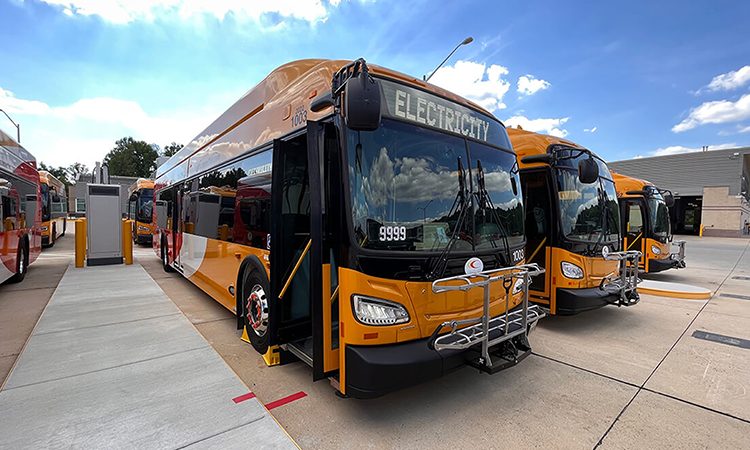NVTC’s strategic plan to accelerate Northern Virginia’s transition to zero-emission buses
- Like
- Digg
- Del
- Tumblr
- VKontakte
- Buffer
- Love This
- Odnoklassniki
- Meneame
- Blogger
- Amazon
- Yahoo Mail
- Gmail
- AOL
- Newsvine
- HackerNews
- Evernote
- MySpace
- Mail.ru
- Viadeo
- Line
- Comments
- Yummly
- SMS
- Viber
- Telegram
- Subscribe
- Skype
- Facebook Messenger
- Kakao
- LiveJournal
- Yammer
- Edgar
- Fintel
- Mix
- Instapaper
- Copy Link
Posted: 15 January 2024 | Intelligent Transport | No comments yet
The Northern Virginia Transportation Commission is driving the transition to zero-emission bus fleets with a new strategic plan, addressing challenges such as the cost, operational differences and workforce adaptation.


Credit: Northern Virginia Transportation Commission
The Northern Virginia Transportation Commission (NVTC) has announced that it is spearheading efforts to transition transit agencies in the region to zero-emission bus (ZEB) fleets. The recently unveiled Northern Virginia Zero-Emission Bus Strategic Plan outlines comprehensive strategies aimed at achieving sustainability goals while ensuring safe, reliable and cost-effective transit services for the community.
ZEBs, which encompass both battery electric buses (BEBs) and hydrogen-powered fuel cell electric buses (FCEBs), are at the forefront of NVTC’s initiative to eliminate tailpipe emissions from the region’s public transportation system. Despite the environmental benefits, the transition to ZEBs poses several challenges that NVTC is actively addressing.
Cost and Funding are at the forefront of these challenges, as ZEBs typically come with a price tag exceeding $1 million per bus and necessitate additional investments in charging or fuelling infrastructure. Operational differences, including the shorter ranges of current BEBs compared to traditional diesel buses, pose logistical challenges in replacing the existing fleet on a 1:1 basis. Availability issues such as grid capacity for BEBs and hydrogen supply for FCEBs remain critical to the successful implementation of ZEBs. Furthermore, adapting the workforce to handle the technical requirements of ZEBs is a key consideration.
NVTC’s multifaceted approach includes actions that are already in progress, such as the facilitation of a ZEB working group and educational initiatives for staff and local officials on ZEB advancements. The plan also identifies “quick wins” that NVTC aims to achieve in 2024, laying the foundation for future endeavours.
Key components of NVTC’s ZEB Strategies include serving as a regional ZEB forum, advocating for consistent and supportive ZEB standards and policies, co-ordinating regional ZEB funding, supporting the development of shared BEB charging infrastructure, evaluating opportunities for private partnerships related to ZEBs and promoting ZEB workforce training and education.
“We recognise that transitioning Northern Virginia’s local bus fleets away from fossil fuels will have multiple benefits for the region,” stated Matt de Ferranti, NVTC Chair. “However, we also know it’s a massive undertaking that requires a deep understanding of all the needs and challenges ahead for our transit agencies. This Northern Virginia Zero-Emission Bus Strategic Plan will provide valuable insight to guide this work.”
Related topics
Air Quality, Alternative Power, Public Transport, Sustainable Urban Transport
Related modes
Bus & Coach
Related cities
Virginia
Related countries
United States
Related organisations
Northern Virginia Transportation Commission (NVTC)
Related people
Matt de Ferranti








